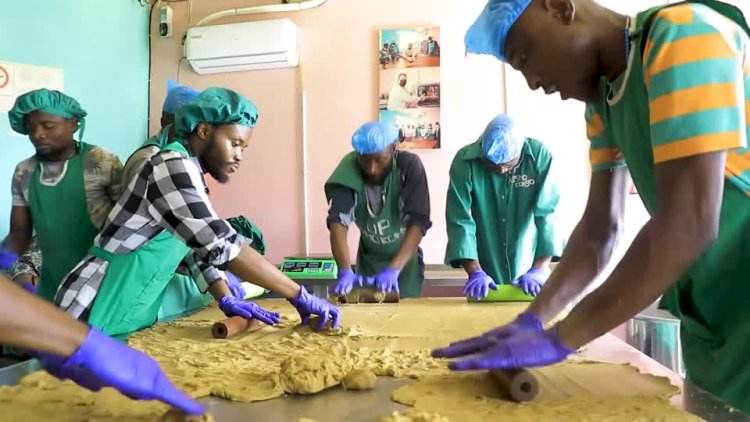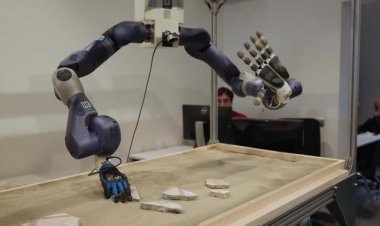Congo factory fights malnutrition with biscuits

In a small factory in Bukavu, eastern Congo, workers knead dough and shape biscuits, part of a local initiative to combat malnutrition exacerbated by recent conflict and looting.
The M23 rebel takeover of Bukavu in February led to widespread looting of aid warehouses, including a World Food Programme depot containing 6,800 metric tons of humanitarian food supplies. The theft worsened an already dire situation in a region where chronic malnutrition affects nearly half of all children.
In response, local non-governmental organization Kesho Congo has ramped up production of nutritional biscuits called "Masoso" to fill the gap left by stolen aid.
"We produce nutritional inputs not only to treat malnutrition with local products, local and sustainable solutions, but also to respond to the current humanitarian crisis," said Dr. Adolphe Nyakasane, manager of Kesho Congo, as he supervised production.
The organization sources ingredients from thousands of local women farmers, using corn, sorghum, and soy flour to create the fortified biscuits.
"The chronic malnutrition rate in South Kivu is 48%, meaning about one in two children suffers from chronic malnutrition," Nyakasane said. "With the current situation, these numbers risk increasing considerably."
At the Kitumaini Nutrition Center in Bukavu, children were seen eating the Masoso biscuits, a welcome relief for the facility struggling to maintain its feeding programs.
The initiative comes as the humanitarian situation in eastern Congo continues to deteriorate. The United Nations estimates that M23's advances have displaced around half a million people since January.
International response to the crisis has included U.S. sanctions on Rwandan officials for alleged support of M23, while Britain has paused some bilateral aid to Rwanda. The European Union is reviewing its agreement with Kigali for strategic minerals.















